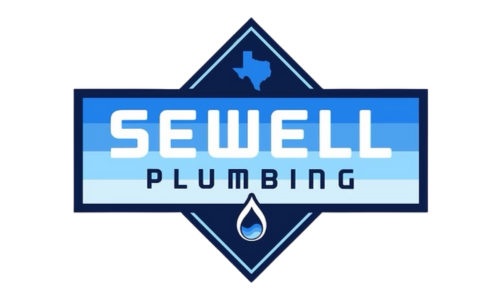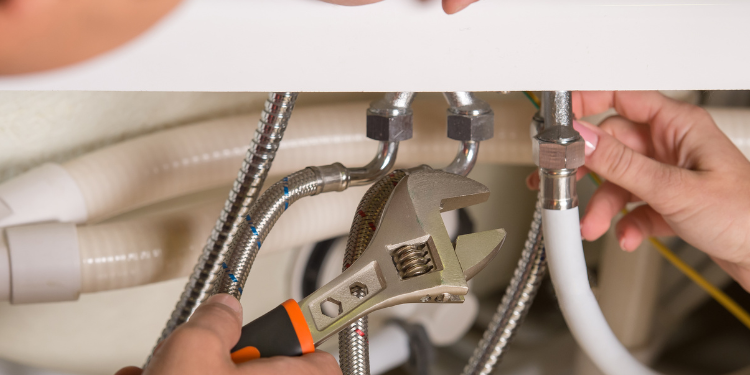Plumbing pipe fittings are an essential part of any plumbing system, helping to direct the flow of water, gas, and waste throughout your home or business. In McKinney, Allen, and Frisco, Texas, understanding the types and roles of these fittings can save you time and money, and ensure your system operates smoothly. Whether you’re considering a renovation or simply looking to maintain your existing plumbing, knowing the basics of pipe fittings will help you make informed decisions.
Key Takeaway: Plumbing pipe fittings come in many varieties, each serving a specific function within your system. From ensuring efficient water flow to maintaining pressure, these small but critical components are integral to your plumbing’s overall success.
Plumbing Pipe Fittings: An Overview
Types of Pipe Fittings
In McKinney and the surrounding areas, different types of pipe fittings are used to accommodate the specific needs of each home or business. These include couplings, elbows, tees, and caps. Couplings are essential for joining two pipes together, while elbows allow for directional changes. Tees split the flow of water or gas, and caps seal the ends of pipes. Each type of fitting plays a specific role in ensuring the system’s efficiency and durability, especially in regions like Allen and Frisco, where weather conditions can impact plumbing systems. Learn more about Sewell Plumbing’s services in McKinney for professional assistance with your plumbing needs.
Material Choices for Fittings
Pipe fittings are made from various materials, including copper, PVC, and brass. Copper fittings are popular for their durability and resistance to corrosion, making them an excellent choice for Texas homes where water quality can fluctuate. PVC, a lightweight plastic, is commonly used in drain, waste, and vent systems. Brass, on the other hand, is known for its long-lasting qualities and is often chosen for water supply lines. Each material offers unique advantages, so choosing the right one depends on your specific plumbing requirements.
Common Uses of Pipe Fittings in Texas Homes
Plumbing fittings in Texas homes are used for more than just connecting pipes. They’re vital for maintaining water pressure, preventing leaks, and ensuring that water flows in the correct direction. In areas like Frisco and McKinney, fittings are often employed in irrigation systems, ensuring that lawns and gardens receive adequate water during hot summers. They are also crucial for HVAC systems, particularly in regions where both heating and cooling are necessary for year-round comfort. If you’re planning a renovation, check out Sewell Plumbing’s gallery for examples of recent projects in the Allen area.
Common Plumbing Pipe Fittings in Residential Systems
Elbows and Couplings
Elbows and couplings are two of the most common types of pipe fittings in residential plumbing. Elbows are used to change the direction of water flow, allowing pipes to bend around corners or obstacles. Couplings, on the other hand, connect two sections of pipe to extend the system. These fittings are critical for the smooth operation of plumbing systems, particularly in homes with complex layouts or multiple floors, such as those found in Frisco and Allen.
Tees and Reducers
Tees and reducers are essential for controlling water flow and pressure. Tees allow plumbers to split the flow of water into two different directions, which is often necessary when connecting multiple fixtures like sinks or toilets to the same water source. Reducers, as the name suggests, reduce the size of the pipe, which helps to manage water pressure. Both of these fittings are commonly found in bathroom and kitchen installations, ensuring that water flows smoothly and efficiently to where it is needed.
Caps and Plugs
Caps and plugs serve as protective fittings. Caps are used to close off the end of a pipe, preventing leaks or debris from entering the system. Plugs function similarly but are often used in drain systems to block off unused sections of pipe. These fittings are crucial for maintaining the integrity of your plumbing system, particularly during repairs or renovations, where sections of pipe may need to be temporarily sealed off.
Specialized Pipe Fittings for Unique Needs
Gas Pipe Fittings
Homes in McKinney and Frisco that rely on natural gas for heating or cooking require specialized gas pipe fittings. These fittings are typically made from materials like brass or steel, which are capable of withstanding the pressure and temperature changes associated with gas lines. Proper installation of gas fittings is essential for safety, making it a task best left to professionals like Sewell Plumbing, who are well-versed in the specific needs of Texas homes.
Water Heater Fittings
Water heater fittings are another specialized category. These include valves, connectors, and pressure relief devices that ensure your water heater operates safely and efficiently. In areas like Allen, where water heaters see frequent use during both the summer and winter months, ensuring that these fittings are properly maintained can help prevent costly repairs or replacements. Learn more about water heating systems here.
Drainage and Sewer Fittings
Drainage and sewer fittings are designed to handle waste and wastewater. These fittings must be made from durable, corrosion-resistant materials like PVC, as they are exposed to a variety of chemicals and high levels of moisture. Proper installation of drainage fittings is crucial for preventing leaks and backups, particularly in areas prone to heavy rainfall like McKinney.
Answering Common Questions
What is the difference between copper and PVC fittings?
Copper fittings are more durable and resistant to corrosion, making them a better choice for water supply lines. PVC fittings, on the other hand, are more affordable and easier to work with, making them ideal for drain and waste systems.
How often should pipe fittings be inspected?
It’s recommended to have your plumbing system, including fittings, inspected annually, especially in areas like Frisco and Allen, where temperature fluctuations can impact plumbing performance.
Can I install pipe fittings myself, or should I hire a professional?
While some minor fitting installations, like replacing caps or plugs, can be done by homeowners, it’s always best to hire a professional for more complex tasks like gas line fittings or major renovations. Sewell Plumbing offers expert services in McKinney, Allen, and Frisco.
Environmental Impact of Plumbing Materials
The materials used in plumbing fittings can have an environmental impact. Copper, for example, is a recyclable material, which makes it an eco-friendly choice for homeowners who are looking to reduce their carbon footprint. PVC, while less expensive, is not biodegradable and can contribute to environmental waste. Choosing the right material for your fittings can help reduce the environmental impact of your plumbing system.
Importance of Professional Installation
Professional installation of pipe fittings ensures that your system will function properly and last for years to come. Improperly installed fittings can lead to leaks, reduced water pressure, and other costly issues. In cities like McKinney and Allen, where the climate can be hard on plumbing systems, hiring a professional like Sewell Plumbing is the best way to ensure the longevity and efficiency of your system.
When to Replace Your Pipe Fittings
Over time, even the most durable pipe fittings can wear out or become damaged. Signs that your fittings need to be replaced include leaks, decreased water pressure, and visible corrosion. In homes throughout Frisco and Allen, regular maintenance and timely replacement of fittings can help prevent larger issues down the road.
Resources for Further Reading:







